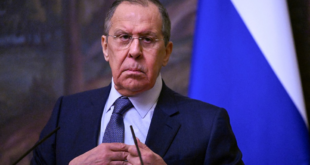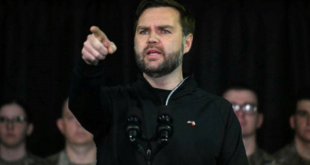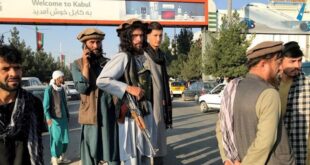WASHINGTON — Afghanistan’s former Taliban leader is pursuing a strategy to reclaim power, the top U.S. intelligence official said Thursday, identifying a key administration concern as the White House prepared to unveil a new strategy to step up combat operations and stabilization efforts.
Mullah Mohammed Omar was ousted by the U.S. invasion in 2001 but has regrouped in Pakistan, where he leads a council of Islamic hard-liners accused of directing insurgent attacks in Afghanistan.However, U.S. spy agencies lack a detailed understanding of the regional dynamics across much of Afghanistan, said Dennis Blair, the director of national intelligence.
“We know a heck of a lot more about Iraq on a very granular basis than we do in Afghanistan,” Blair said, describing an intelligence imbalance that could hamper the Obama administration’s efforts as it shifts troops from one war theater to the other.
Blair’s comments came as President Barack Obama is poised today to spell out a U.S. strategy aimed at stabilizing a region that remains a base of operations for al-Qaida.
Overall, the strategy will rely on a plan to split the Taliban insurgency, separating factions that can be induced to support the U.S.-backed government from those that are seen as irreconcilable.
In a briefing with reporters, Blair said two-thirds of Taliban militants are primarily concerned with regional issues and can be defeated or co-opted if the government in Kabul can improve its ability to provide security and services beyond the capital.But Blair indicated that U.S. intelligence analysts believe the remaining one-third of the insurgency is intractable.
That group, loyal to Omar, is pursuing “an overall strategy pointed towards resuming a position of power within Afghanistan,” Blair said.
“Omar is certainly a tough case and thinks he ought to be running Afghanistan himself and doesn’t show many signs of settling for anything less,” he said.
Omar is believed to be based in Quetta, Pakistan.
The combination of cross-border sanctuaries and limited U.S. intelligence capabilities underscores hurdles that confront the United States as it seeks to replicate elements of the stabilization of Iraq.
However, the new administration plan is expected to embrace a set of what officials consider to be achievable goals for Afghanistan, reflecting the Obama administration’s belief that the Bush administration was too intent on an unlikely quest for vibrant democracy in Kabul.
At a Senate confirmation hearing Thursday, Lt. Gen. Karl Eikenberry, the former top commander in Afghanistan who has been nominated as ambassador in Kabul, called improving Afghan security forces “critical to our collective progress.”
“We don’t have an unlimited amount of time here,” Eikenberry said. “Time is not necessarily with us, unless we … are able to implement a more effective strategy.”
 Eurasia Press & News
Eurasia Press & News



